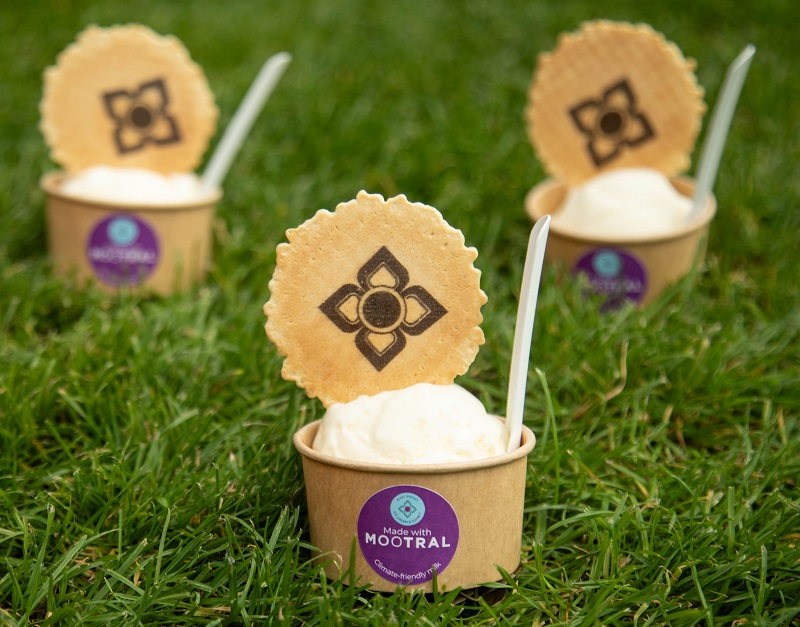The food and beverage industry is constantly evolving, with trends and technologies shaping the way we manufacture, distribute, and consume our favorite products. A recent collaboration between British agtech company Mootral and Ruby Violet, a popular ice cream destination in London’s Kings Cross, aims to address the pressing issue of climate change through the creation of a groundbreaking ice cream.
Dubbed MaxiMootral, this climate-friendly ice cream is made using milk from cows that are fed with Mootral’s methane-reducing ruminant feed. By incorporating innovative solutions into the dairy industry, this project showcases the potential for combating climate change and pursuing a sustainable future.
Mootral, established in 2020, has already secured over €2.5 million in funding. At the core of their efforts is Mootral Ruminant, a natural supplement developed by British scientists. This supplement, derived from garlic and citrus extracts, aids cow digestion while reducing methane emissions from burps by up to 38%. Additionally, it improves yield and critical health parameters, enabling the production of climate-friendly milk and beef.
Thomas Hafner, CEO and founder of Mootral, expressed excitement about meeting the British people’s demand for sustainable choices and collaborating with the dairy industry to provide climate-smart milk. The partnership between Mootral and Ruby Violet demonstrates that delicious and sustainable dairy products can be readily accessible today.
The issue of reducing methane emissions from cows is crucial in achieving the UK government’s net-zero greenhouse gas emissions target by 2050. Agriculture, responsible for 11% of UK GHG emissions, must contribute to this goal. To address this, Mootral and other companies are leveraging both nature-based and synthetic feed additives to curb methane emissions.
Cost remains a significant barrier to widespread adoption of such solutions. Mootral Ruminant, for instance, is considered a premium feed product. However, Mootral’s plans for scalability rely on their innovative use of carbon credits. To subsidize the feed’s cost, the company has sold 3,000 cattle-generated carbon offsets to UK firms. Each offset equals a reduction of 1 tonne of CO2, appealing to businesses actively seeking high-quality credits to meet their ESG targets.
CowCredits, which are issued by Verra, one of the world’s leading carbon emissions reduction certifiers, play a crucial role in these efforts. The adoption of sustainable practices in agriculture is becoming increasingly important as companies and governments look to reduce emissions and fight climate change.
Hafner emphasized the importance of commercially viable solutions for farmers to enable a successful transition towards sustainable practices in animal agriculture. The CowCredits program channels finance into agricultural projects that have an immediate, measurable, and permanent impact on mitigating climate change.
In conclusion, the collaboration between Mootral and Ruby Violet represents a significant step towards addressing the climate crisis. By leveraging innovative technologies and sustainable practices, the food and beverage industry can make a positive impact on the environment while continuing to deliver delicious and accessible products.




